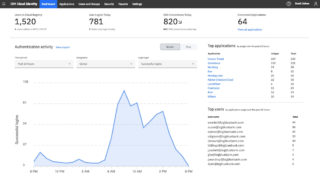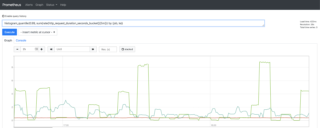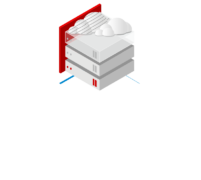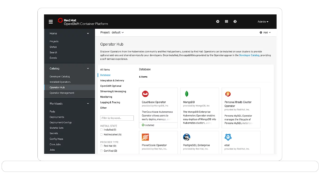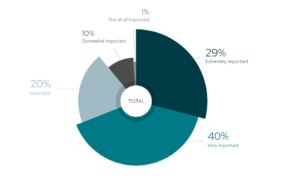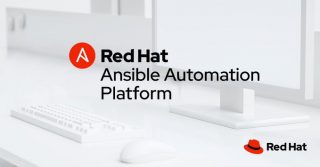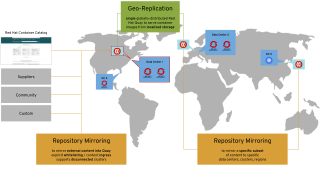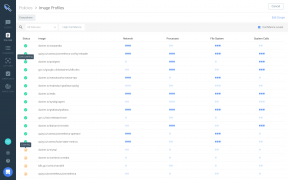Topic: red hat
Red Hat OpenShift Container Storage 4 to deliver a multi-cloud experience
Red Hat announced the release of Red Hat OpenShift Container Storage 4 to deliver an integrated, multi-cloud experience to Red Hat OpenShift Container Platform users. According to the company, Red Hat OpenShift Container Storage 4 offers greater abstraction and flexibility so that customers can have the freedom to choose data services across multiple public clouds, … continue reading
ITOps Times news digest: IBM Cloud Identity adds AI-based adaptive access, Red Hat renews FIPS 140-4, and Compuware to acquire Innovation Data Processing
IBM Security is extending a feature that was previously only available to the financial sector to all industries. IBM Cloud Identity will now offer AI-based adaptive access capabilities. This will help companies assess risk levels when accessing applications and services, then escalate suspicious interactions to provide extra authentication. “Companies are constantly trying to optimize both … continue reading
Problems and solutions of monitoring your Kubernetes Operators
For me, the most important thing monitoring can provide is the ability to see what is happening inside your clusters–be it the state of the workload, or the status of the applications–is significant and should not be a day two concern. Good information on your clusters allows you to react quickly to misconfigured deployed applications, … continue reading
ITOps Times Open-Source Project of the Week: Project Quay
Red Hat has announced Project Quay is now open sourced. Project Quay is an upstream project that represents the code in Red Hat Quay, Quay.io, and years of work around Red Hat’s and CoreOS’s Quay container registry. “Quay was the first private hosted registry on the market, having been launched in late 2013. It grew … continue reading
ITOps Times news digest: Red Hat Enterprise Linux 8.1, Logz.io releases Log Patterns, and VMware Tanzu
Red Hat has announced the latest version of Red Hat Enterprise Linux. Version 8.1 is the first minor release of Red Hat Enterprise Linux 8. The release enhances the manageability, security, and performance of the operating system. It also adds System Roles, which streamlines the process of setting up subsystems for handling specific functions like … continue reading
ITOps Times news digest: Red Hat Smart Management, Splunk Mission Control and Riverbed SteelConnect EX
Red Hat announced its October 2019 release of the Smart Management solution it announced in May. Red Hat Management is designed to provide infrastructure management and cloud management services in order to help users manage any environment — from physical machines and hybrid multi cloud. “Red Hat Smart Management introduces a new era of management … continue reading
Red Hat OpenShift 4.2 released
Red Hat announced the latest version of its enterprise Kubernetes platform, Red Hat OpenShift 4.2. The new version is designed to provide new client tools and local development capabilities, and includes the company’s service mesh, serverless and pipeline solutions. “More and more organizations across industries and around the world trust Red Hat OpenShift to run … continue reading
Red Hat: Open-source adoption increases in IT
Open source seems to be the backbone of modern organizations. This is according to Red Hat’s State of Enterprise Open Source report. “The question today isn’t whether open source software is important to enterprises, especially in infrastructure roles. That’s a given,” the report stated. “The fact that these numbers will be unsurprising to many is … continue reading
Red Hat announces new Ansible Automation Platform
Red Hat has released a new enterprise-grade solution that will help companies advance automation at scale. The company announced Red Hat Ansible Automation Platform at this week’s AnsibleFest in Atlanta. The platform is designed to improve operational efficiencies, reduce risk and provide a consistent user experience. In addition, it features integrations with Red Hat Ansible … continue reading
Red Hat OpenStack Platform 15 is now available
The latest version of Red Hat’s infrastructure as a service solution is now available. Red Hat OpenStack Platform 15 introduces improvements to performance and cloud security, as well as expanding the ecosystem of supported hardware. According to the company, IT organizations will now be able to “more quickly and more securely support demanding production workloads.” … continue reading
Red Hat Quay 3.1 improves developer experience across distributed environments
Red Hat has improved its container registry to make it better for distributed environments. The latest release, Red Hat Quay 3.1, builds on Red Hat’s effort to make it easier for users to store, build, and deploy container images securely across diverse environments. It includes a number of new features that solidifies its manageability across … continue reading
ITOps Times news digest: Sysdig Secure 2.4, Red Hat Enterprise Linux 7.7, Tenable’s asset discovery capabilities
Sysdig Secure 2.4 is now available. This new update adds runtime profiling and new interfaces. According to the company, these new features are designed to improve the experience of creating security policies. “Sysdig Secure 2.4 expands on its previous runtime security and vulnerability management capabilities with the addition of runtime profiling and the new policy … continue reading


